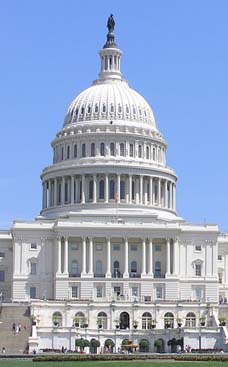
Ethiopia is a pertinent place to explore questions of community participation in schooling because it considers local- level participation in school operations to be an integral part of recent decentralization reforms and a way to increase educational access and quality (Federal Democratic Republic of Ethiopia, 1998, 2002). After years under a highly centralized socialist regime, Ethiopia was reorganized in the early 1990s into a federation that devolved administrative and financial authority and responsibility to regions, and from the regional governments down to subregional units of administration.
Guinea RPCV Jennifer Swift-Morgan writes: What Community Participation in Schooling Means: Insights from Southern Ethiopia
What Community Participation in Schooling Means: Insights from Southern Ethiopia
Oct 1, 2006
Harvard Educational Review
Community participation is a term frequently used and often cited in international educational development. In this article, Jennifer Swift-Morgan investigates the definition and impact of community participation in schooling in rural Ethiopia. Although national governments, development agencies, and nongovernmental organizations across the developing world increasingly encourage community participation, our understanding of this term remains vague due to a lack of detailed analysis. Swift-Morgan's qualitative study examines the form and scope of community participation. She finds that in rural Ethiopia, this range is complex, but a large portion of what is characterized as community participation is monetary contributions rather than involvement in decisionmaking or teaching and learning.
Swift-Morgan also shows that there are particular challenges for the participation of women and the poor, and that financial incentives and technical assistance that encourage broad- based decisionmaking create incentives for broader community participation. Swift-Morgan concludes the article with policy implications, particularly with respect to how programs that attempt to encourage community participation can be made more effective.
[Excerpt]
Case Context: Ethiopia and the BESO Community Participation Projects
Ethiopia is Africa's oldest independent nation and its second most populous, hosting an exceptionally diverse population of more than seventy million people representing over seventy ethnicities and several religious and linguistic groups (Embassy of Ethiopia, n.d.). The vast majority of Ethiopians reside in rural areas and depend on traditional, rain-fed agriculture for subsistence. Ethiopia is one the world's poorest countries; the nation ranks seventh from the bottom in the United Nation's Human Development Index, and its per capita annual income of $110 is well below the average for Sub-Saharan Africa (World Bank, 2005).
Many of Ethiopia's current development challenges relate to the country's political and economic history. From 1974 to 1991, Ethiopia was ruled by a Marxist military junta, called the Derg, which replaced the imperial government with its own brand of authoritarian rule. During this period, regional separatist groups challenged the Derg's authority, often with violent results. In this context of war and political upheaval, a devastating famine in 1984 and 1985 killed hundreds of thousands of Ethiopians and displaced thousands more through forced resettlement programs. While cyclic droughts were partly to blame for the tragedy, so too were the Derg's failed economic policies, its high military expenditures, and its use of food aid and resettlement policies to favor political supporters (Joireman, 1997; Milner, 2000).
After seventeen years of authoritarian rule and internal strife, forces of the Ethiopian People's Revolutionary Democratic Front (EPRDF) overthrew the Derg and ushered in a period of political, economic, and social transition. The Federal Democratic Republic of Ethiopia (FDRE), created in 1994, consists of nine administrative regions newly demarcated along ethnic lines in an attempt to ease tensions by granting significant autonomy to the major ethnic groups. Regional conflict, however, both with neighbor Eritrea and within the country, has continued to flare up throughout the past decade.
Today the country's challenges are in sharp focus in the context of a highly contentious and increasingly violent political environment. In May 2005, Ethiopians went to the polls for the third multiparty elections in the country's history. While the opposition won a record number of seats in Parliament, Prime Minister Meles Zenawi of the ruling EPRDF, once considered a leader for democratic change in Africa, retained his seat for a third fiveyear term. Although international observers deemed the polls largely free and fair, the opposition has charged the EPRDF with election fraud. Since May 2005 government forces killed more than eighty people in protests over the contested elections, a crackdown that took the world by surprise (Lacey, 2005).
The controversy and subsequent disturbances reveal growing frustration stemming from a decade of unrealized promises of democracy and development.
Despite serious urban opposition to the Zenawi government and criticism of the ethnically divisive system, the EPRDF has traditionally enjoyed support among the rural population (Adow, 2005). This endorsement is largely based on the government's efforts to extend social services to the rural population, services that were previously unavailable or centrally controlled by the Derg. The previous regime used primary and secondary schools largely to reproduce socialist ideologies (World Learning, n.d.), and following the fall of the Derg many communities burned down their local schools in an effort to destroy these lasting symbols of oppression (Tietjen, 1998; World Learning, n.d.).
Ethiopia has made considerable progress in mass schooling since the early 1990s. Average enrollment in primary school has increased more than 15 percent since the first Education sector Development Program (ESDP I) was launched by the Ethiopian government in 1997. The GER for the first cycle of primary schooling (grades 1-4) leapt from 54.8 percent in 1997 to 83.0 percent in 2000; rates for the second primary cycle (grades 5-8) rose from 17.9 percent to 30.8 percent (Federal Democratic Republic of Ethiopia [FDRE], 2002).
Despite this progress, many challenges remain - as the political opposition is keen to point out. The average primary GER for girls in Ethiopia in 2000 was estimated at just 40.7 percent, much lower than for boys, indicating gender disparities relative to access to schooling, and average rates of primary grade repetition remain high at 11 percent (USAID, 2003). These challenges are exacerbated by high levels of international debt, recurring conflict with Eritrea, and a new round of devastating drought that has severely taxed the government's capacity to fully fund both ESDP I and the federal- level education program that covers 2002-07, ESDP II, and communities' ability to support their schools.
In the SNNPR, vast ethnic and linguistic diversity makes it unique from the other, largely homogenous regions. Approximately 69 percent of the country's estimated seventy-eight ethnic groups reside in this region (Embassy of Ethiopia, n.d.). In this coffee- growing area vulnerable to drought, the region's diversity translates into considerable socioeconomic disparity as ethnic hierarchies have meant that some groups have greater access to land and economic opportunity than others (Pausewang, Tronvoll, & Aalen 2002; Wondimu, 2002). In 2000, the GER for the region was estimated at 63.8 percent, below the national average (Ethiopian Ministry of Education, as cited in Wondimu, 2002).
The government's decentralization policy is one strategy to promote the rural and national development that Ethiopia desperately needs. This is a sharp departure from the Derg's central control of primary schooling. In contrast, Ethiopia's current education policy calls for greater community engagement as the final, most localized level of the decentralized system and explicitly mandates participation in school operations and management. The policy change began with the 1994 Education sector Strategy policy of the Transitional Government, which stated:
Schools will be strongly linked with the community, which will take responsibility in its well-being and upkeep. They will be made to be responsive to the local needs and requirements and shall act as centers for all educational activities of the community. The management of each school will be democratized and run with the participation of the community, the teachers, the students and the relevant government institutions. (Transitional Government of Ethiopia, 1994, pp. 16-17)
The FDRE's subsequent ESDP I and II Program Action Plans echo this rhetoric and further underline the role of the community in education delivery and management. The Program Action Plans of ESDP II give specific examples of ways communities can participate, including "policy formulation, project implementation and problem solving," as well as "construction of new school buildings..., school maintenance, and mobilization of parents to increase enrollment, especially that of girls" (Federal Democratic Republic of Ethiopia, 2002, section 6.4). ESDP II also greatly emphasizes the role of communities in helping to fund the education sector program, aiming to have "mechanisms designed so that community [sic] will voluntarily and directly contribute to the financing of education based on its capacity." This strategy also intends to "promote a sense of ownership and thereby raise [the community's] own role in the management of schools" (FDRE, 2002, section 5.2)
USAID's BESO program has invested millions of dollars in Ethiopia's decentralization reforms in the education sector and in the country's efforts to engage communities in schooling delivery and management. World Learning implemented the first community participation component of BESO, the Community Schools Activity Project (CSAP), from 1996 to 2002 in seven hundred schools in the SNNPR. By providing technical assistance and modest community incentive grants, CSAP focused on building the capacity of school management committees (SMCs), which were composed of school staff and influential community members, and occasionally parents (World Learning, n.d.).
Working through local school development agents (SDAs) that the project hired and trained, CSAP helped organize SMCs where they did not exist and provided the committees with training and ongoing technical support to plan and implement school- improvement projects, such as addressing infrastructure pr\oblems and furnishing supplies and textbooks, as well as campaigns to promote girls' education and safety.
The SMCs submitted their school action plans for funding through CSAP's incentive grant program (World Learning, n.d., 2002). The CSAP incentive grants were allocated in three phases in increasing amounts from one phase to the next. Each phase required the SMCs to meet certain criteria, and as the amount of the grants increased the criteria became increasingly rigorous and the proposed projects more complex, which required different forms of community participation in schooling (such as establishing a school resource center to create and share teaching materials).2
At the end of CSAP, USAID and World Learning reported that in roughly 53 percent of the seven hundred targeted schools, female repetition rates "fell below the national grade four average of 11 percent" over the five-year life of the project (USAID/Ethiopia, 2003, p. 26). Moreover, girls' primary enrollment in 2000 was found to be 3.3 percent greater in schools participating in the grants program than in non-CSAP schools. In sum, World Learning reports that community involvement in education in CSAP schools led to a "positive and sustainable impact on the quality of teaching and learning" (2002, p. 1).
In 2002, USAID and World Learning launched the Community Government Partnerships Project (CGPP), which runs through 2006. Like CSAP, CGPP aims to promote community participation in support of educational access and quality, but it focuses more directly on strengthening government capacity to support Ethiopia's new parent teacher associations (PTAs), which have replaced the SMCs and are comprised of teachers and parents instead of nonparent community members.


















